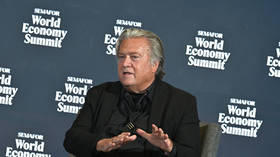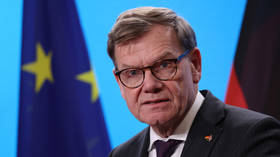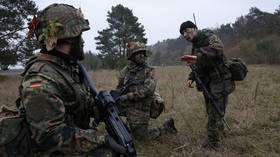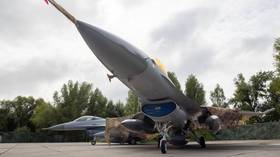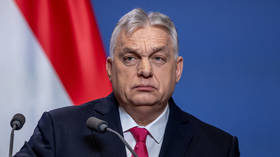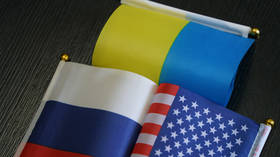‘Worst time for more anti-Russia sanctions as European recovery is fragile’
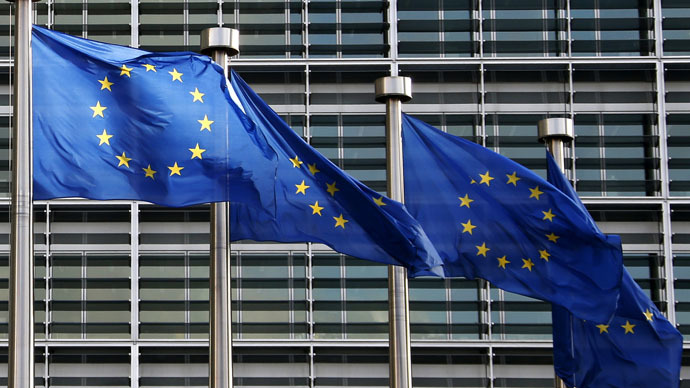
It is the worst time for the EU to impose more sanctions against Russia as the recovery in Europe is so fragile and it can ill afford any more conflict and instability, Felix Moreno, economist and trader, told RT.
READ MORE: Obama, Merkel display ‘tactical
disagreements’ over Ukraine
RT:There have been several protests in Spain over the fallout from the sanctions. Most recently, farmers in Catalonia dumped tons of rotten fruit. Do you think the situation will improve for them any time soon?
Felix Moreno: Hopefully we will see some progress in the Minsk talks, although it is very difficult to predict. The forces for escalation in this conflict are very strong. And despite the fact that most of Europe wants peace and wants a negotiated solution, wants fruitful talks and not sanctions or any other threats - what we are seeing so far doesn’t speak very optimistically about this.
RT:Twenty-one billion euro in lost exports when Spain agreed to go ahead with sanctions on Russia. Did it factor in that this was a possible outcome?
FM: Of course. Whenever sanctions are imposed by one block, the immediate reaction tends to be retaliatory sanctions from the other block. And this was to be expected. And we’ve seen the same thing. Obviously, Spanish agriculture was not one of the main sectors that we thought about and what at least the negotiators in Brussels thought about when they decided about the sanctions. But it is not just Spanish agriculture, it’s also Spanish tourism, it’s also agriculture in many Eastern European countries which have a very, very strong export market to Russia, and of course it is also imports that are affected. All the European countries that import energy from Russia are very much affected. So the economic consequences are very dire, not only for Russia but also for Europe. And also it doesn’t help the cause of peace. As Frederic Bastiat says: “When goods don’t cross borders, armies do.”
Video: /files/opinionpost/38/5c/30/00/2560586_opedge1_web.mp4
RT: The sanctions are aimed at crippling Russian economy... But can Spanish economy afford that?
FM: Spain can probably take the pain, but Europe cannot. It can ill afford any more conflict and any more instability when the recovery in Europe is so fragile. We see Germany barely growing, we see France almost in recession, Italy in recession, and we have the Greek crisis again to deal with. So this is the worst possible time to have instability, conflict, and possible war at our doorsteps.
RT:It seems that the EU is divided over the need for sanctions. Can you imagine any country pulling out of sanctions unilaterally?
FM: No, I think there are voices against the sanctions, very strong voices, within the EU. In fact, I’m sure that the majority of European citizens want peace, and they might agree to the threat of the sanctions but they don’t want sanctions to be put in place because they will not help at all. But within the EU there is a very strong division. There are the Western European countries like France, Spain who are mostly against, and also Germany - which is a very strong commercial partner of Russia - were very strongly against this Cold War mentality, against this aggressive posturing and very much in favor of the negotiation.
After all Germany is a federal country, Spain is almost in practice a federal country. And Ukraine is asking the EU for lots of funds, they are asking their American allies for a lot of funds. It would be very easy to make a condition of those funds that they sit at the negotiating table and they agree to some kind of power sharing solution that pacifies the separatists and that ends up with a Federal or similar model in which there is no threat of being controlled or being dominated by the opposition. There are many, many models that could reach a peaceful solution and it doesn’t look like anybody is making a big effort to put those in place.
The statements, views and opinions expressed in this column are solely those of the author and do not necessarily represent those of RT.
The statements, views and opinions expressed in this column are solely those of the author and do not necessarily represent those of RT.



